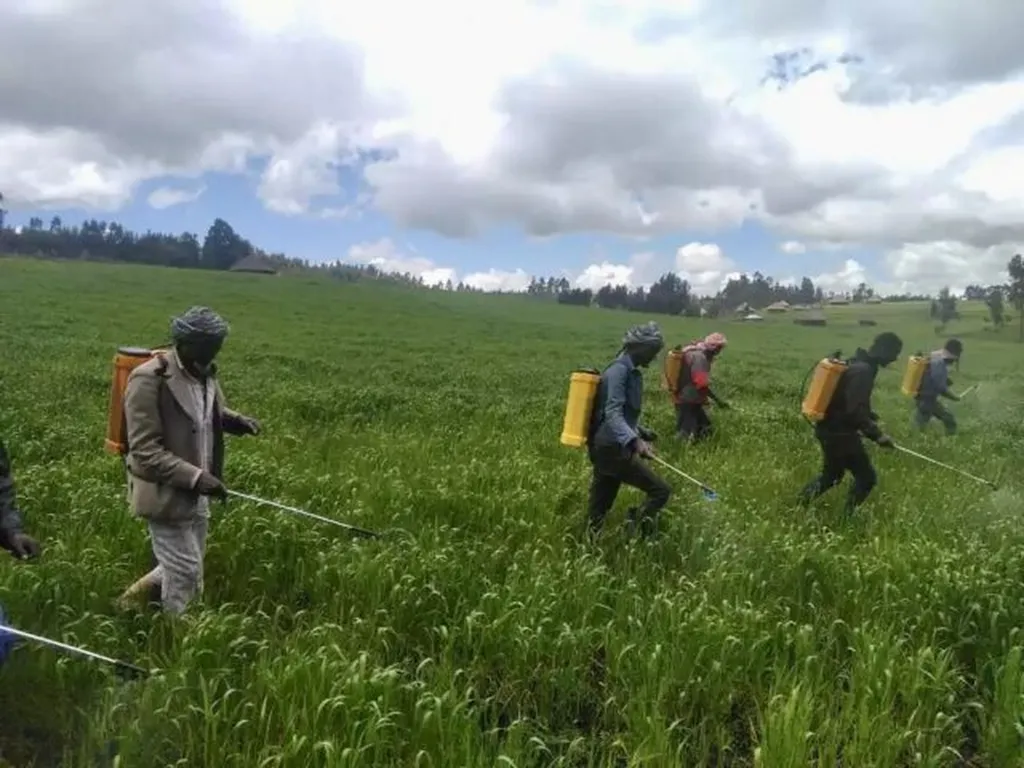In the heart of Ethiopia’s breadbasket, a groundbreaking study is challenging conventional farming practices and offering a promising path toward sustainable agriculture. Researchers have discovered that Eco-Green liquid fertilizer, when applied as a seed treatment, can significantly boost the growth and yield of bread wheat (Triticum aestivum L.), a staple crop for millions worldwide.
The study, led by Birhanu Gebeyehu Abebaw of the Department of Plant Science at Mekdela Amba University, evaluated the impact of different rates and application methods of Eco-Green liquid fertilizer on bread wheat in Northeastern Ethiopia. The findings, published in the Bulletin of University of Agricultural Sciences and Veterinary Medicine Cluj-Napoca: Agriculture, reveal that the highest rate of Eco-Green (40 L ha⁻¹) led to the tallest plants, longest spikes, and maximum kernels per spike, resulting in a remarkable grain yield of 6200 kg ha⁻¹.
But the real game-changer? The application method. “Seed treatment consistently outperformed foliar and soil application,” Abebaw explains. This method resulted in superior tillering, kernel number, and an impressive grain yield of 5870.7 kg ha⁻¹. The implications for the agriculture sector are substantial. With bread wheat being a major food crop, this research could pave the way for increased food security and income for farmers, particularly in tropical and subtropical regions.
The study’s findings suggest that Eco-Green liquid fertilizer, when used as a seed treatment, could be a viable alternative to traditional fertilizers. This could lead to reduced input costs for farmers and a more sustainable approach to agriculture. As the world grapples with the challenges of climate change and food security, such innovations are crucial.
The research also opens up new avenues for future developments in the field. As Abebaw notes, “This study provides a foundation for further research into the optimal use of Eco-Green and other liquid fertilizers.” Future studies could explore the long-term effects of these fertilizers on soil health and crop rotation, as well as their potential to enhance the resilience of crops to climate change.
In the quest for sustainable agriculture, this study is a significant step forward. It offers a glimpse into a future where innovative farming practices could help feed the world’s growing population, while also protecting the planet. As the agriculture sector continues to evolve, such research will be instrumental in shaping its trajectory.

